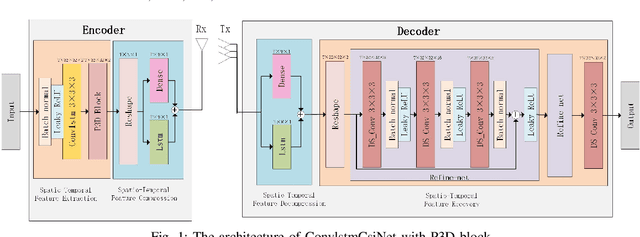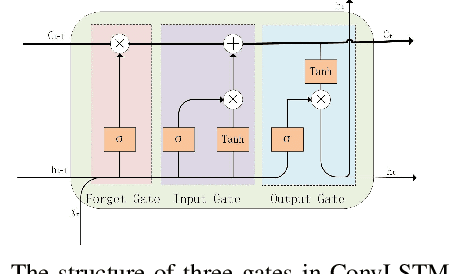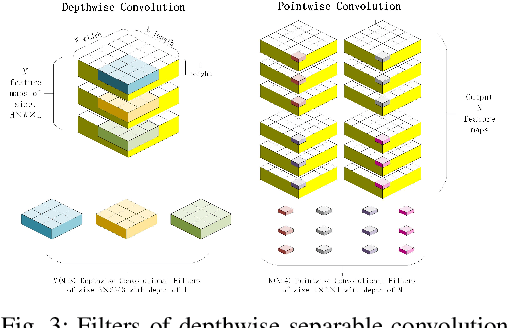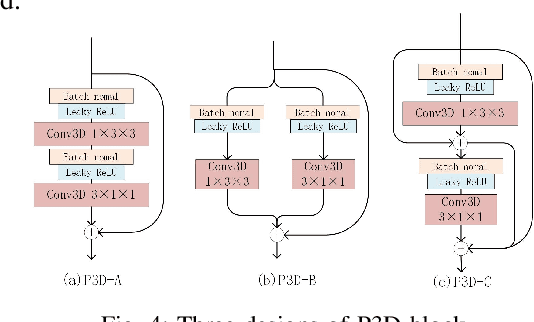Xiangyi Li
In2x at WMT25 Translation Task
Aug 20, 2025Abstract:This paper presents the open-system submission by the In2x research team for the WMT25 General Machine Translation Shared Task. Our submission focuses on Japanese-related translation tasks, aiming to explore a generalizable paradigm for extending large language models (LLMs) to other languages. This paradigm encompasses aspects such as data construction methods and reward model design. The ultimate goal is to enable large language model systems to achieve exceptional performance in low-resource or less commonly spoken languages.
AI for CSI Prediction in 5G-Advanced and Beyond
Apr 17, 2025Abstract:Artificial intelligence (AI) is pivotal in advancing fifth-generation (5G)-Advanced and sixth-generation systems, capturing substantial research interest. Both the 3rd Generation Partnership Project (3GPP) and leading corporations champion AI's standardization in wireless communication. This piece delves into AI's role in channel state information (CSI) prediction, a sub-use case acknowledged in 5G-Advanced by the 3GPP. We offer an exhaustive survey of AI-driven CSI prediction, highlighting crucial elements like accuracy, generalization, and complexity. Further, we touch on the practical side of model management, encompassing training, monitoring, and data gathering. Moreover, we explore prospects for CSI prediction in future wireless communication systems, entailing integrated design with feedback, multitasking synergy, and predictions in rapid scenarios. This article seeks to be a touchstone for subsequent research in this burgeoning domain.
Deep Learning-based CSI Feedback in Wi-Fi Systems
Jul 08, 2024



Abstract:In Wi-Fi systems, channel state information (CSI) plays a crucial role in enabling access points to execute beamforming operations. However, the feedback overhead associated with CSI significantly hampers the throughput improvements. Recent advancements in deep learning (DL) have transformed the approach to CSI feedback in cellular systems. Drawing inspiration from the successes witnessed in the realm of mobile communications, this paper introduces a DL-based CSI feedback framework, named EFNet, tailored for Wi-Fi systems. The proposed framework leverages an autoencoder to achieve precise feedback with minimal overhead. The process involves the station utilizing the encoder to compress and quantize a series of matrices into codeword bit streams, which are then fed back to the access point. Subsequently, the decoder installed at the AP reconstructs beamforming matrices from these bit streams. We implement the EFNet system using standard Wi-Fi equipment operating in the 2.4 GHz band. Experimental findings in an office environment reveal a remarkable 80.77% reduction in feedback overhead compared to the 802.11ac standard, alongside a significant boost in net throughput of up to 30.72%.
Auto-CsiNet: Scenario-customized Automatic Neural Network Architecture Generation for Massive MIMO CSI Feedback
Nov 27, 2023



Abstract:Deep learning has revolutionized the design of the channel state information (CSI) feedback module in wireless communications. However, designing the optimal neural network (NN) architecture for CSI feedback can be a laborious and time-consuming process. Manual design can be prohibitively expensive for customizing NNs to different scenarios. This paper proposes using neural architecture search (NAS) to automate the generation of scenario-customized CSI feedback NN architectures, thereby maximizing the potential of deep learning in exclusive environments. By employing automated machine learning and gradient-descent-based NAS, an efficient and cost-effective architecture design process is achieved. The proposed approach leverages implicit scene knowledge, integrating it into the scenario customization process in a data-driven manner, and fully exploits the potential of deep learning for each specific scenario. To address the issue of excessive search, early stopping and elastic selection mechanisms are employed, enhancing the efficiency of the proposed scheme. The experimental results demonstrate that the automatically generated architecture, known as Auto-CsiNet, outperforms manually-designed models in both reconstruction performance (achieving approximately a 14% improvement) and complexity (reducing it by approximately 50%). Furthermore, the paper analyzes the impact of the scenario on the NN architecture and its capacity.
Multi-task Learning-based CSI Feedback Design in Multiple Scenarios
Apr 27, 2022



Abstract:For frequency division duplex systems, the essential downlink channel state information (CSI) feedback includes the links of compression, feedback, decompression and reconstruction to reduce the feedback overhead. One efficient CSI feedback method is the Auto-Encoder (AE) structure based on deep learning, yet facing problems in actual deployments, such as selecting the deployment mode when deploying in a cell with multiple complex scenarios. Rather than designing an AE network with huge complexity to deal with CSI of all scenarios, a more realistic mode is to divide the CSI dataset by region/scenario and use multiple relatively simple AE networks to handle subregions' CSI. However, both require high memory capacity for user equipment (UE) and are not suitable for low-level devices. In this paper, we propose a new user-friendly-designed framework based on the latter multi-tasking mode. Via Multi-Task Learning, our framework, Single-encoder-to-Multiple-decoders (S-to-M), designs the multiple independent AEs into a joint architecture: a shared encoder corresponds to multiple task-specific decoders. We also complete our framework with GateNet as a classifier to enable the base station autonomously select the right task-specific decoder corresponding to the subregion. Experiments on the simulating multi-scenario CSI dataset demonstrate our proposed S-to-M's advantages over the other benchmark modes, i.e., significantly reducing the model complexity and the UE's memory consumption
Spatio-Temporal Representation with Deep Neural Recurrent Network in MIMO CSI Feedback
Aug 22, 2019



Abstract:In multiple-input multiple-output (MIMO) systems, it is crucial of utilizing the available channel state information (CSI) at the transmitter for precoding to improve the performance of frequency division duplex (FDD) networks. One of the mainchallenges is to compress a large amount of CSI in CSI feedback transmission in massive MIMO systems. In this paper, we propose a deep learning (DL)-based approach that uses a deep recurrent neural network (RNN) to learn temporal correlation and adopts depthwise separable convolution to shrink the model. The feature extraction module is also elaborately devised by studyingdecoupled spatio-temporal feature representations in different structures. Experimental results demonstrate that the proposed approach outperforms existing DL-based methods in terms of recovery quality and accuracy, which can also achieve remarkable robustness at low compression ratio (CR).
 Add to Chrome
Add to Chrome Add to Firefox
Add to Firefox Add to Edge
Add to Edge